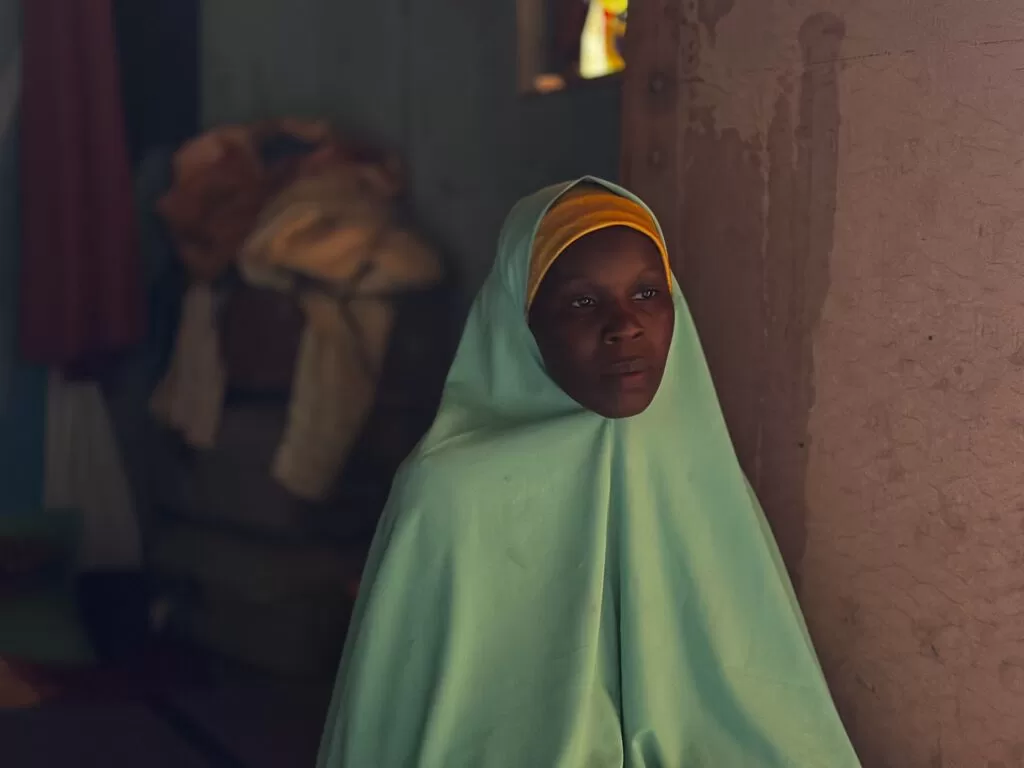Somehow, in all the 11 years she spent in detention at the Wawa military cantonment in North-central Nigeria, she forgot to factor in what all that time must have done to her son; that he must have grown, that he could now be as tall as her. Even when he came to her in her dreams, it was as the three-year-old she left him. For these reasons, Hafsatu Usman now spends a lot of time staring at her son, Amir. It has been a little over two months since she came home, but she still cannot get used to the idea of this young man as her son. Her son. Her own son.
At first, she refused to believe he was hers. Then, she took his arm and found the birthmark he had when she gave birth to him, and she knew.
2013
She was on a commercial bus conveying them and some other women and children from Yola in Nigeria’s northeastern region in 2013 when soldiers stopped them along Mubi road in Adamawa state. What started as a routine checkpoint encounter soon separated her from her family and threw her in prison. Her son was taken to an orphanage home in Adamawa.
HumAngle reported the boy’s experience in April this year. We also reached out to the Army with details of his mother’s detention, asking about her status. She was released alongside seven others about three months later. Some of the women she was detained alongside are sadly still held by the authorities. One of them, Zainab Iliyasu, is allegedly still being held “as they can’t find her file.”
The arrests happened when the Boko Haram crisis was near its peak. As the Nigerian army fought to counter the insurgency, they conducted mass arrests of people all over the region in their thousands. Some of those people were innocent displaced people fleeing the violence themselves. Some were people who had attended the group’s peaceful preachings at first but stopped when the group became violent, people who had been seen near people who looked like insurgents, people who were married or affiliated with suspected members, people who fell into the usual age category of suspects, people who just happened to be at the right place at the wrong time, etc. It was these mass arrests that led to the emergence of the Knifar Movement, a group of displaced women in Borno state who came together to advocate for their relatives who had been arbitrarily detained. Many of the reported 25,000 missing people in Nigeria’s northeastern region are believed to be victims of these kinds of arrests.
Hafsatu Usman was detained on account of her husband, who had, like thousands of curious youths, attended preachings held by the Boko Haram group in its early days. Though he stopped when the group became violent, the army hunted him down and her, too.
“I was not a member,” she reiterates to me. “And I was not caught with arms or bombs or anything.”
2024
During the first half of my interview with Hafsatu, she speaks slowly, her voice low. It takes her a lot of time to understand and digest a question and even more time to respond. It seems her mind has not fully returned to her, a consequence of isolation for 11 years.
Her family say it was way worse when she returned two months ago.
“She could barely respond when spoken to. She was always deep in thought and unwilling to go outside the room because her eyes would hurt from the light,” her mother-in-law, Ya Fati, tells me. She also spends a lot of time just staring into space.
She has still not fully adjusted. Whenever she emerges from a room, she squints her eyes for the first few seconds, the light too harsh for them to contain. She tells me she once went a whole year in a tiny room with no chance of sunlight. Once every six to eight months, officials would bring them out of the rooms for about ten minutes before rushing them back in. Her eyes, once a prized possession and her window to freedom and experiencing the world, have turned against her.
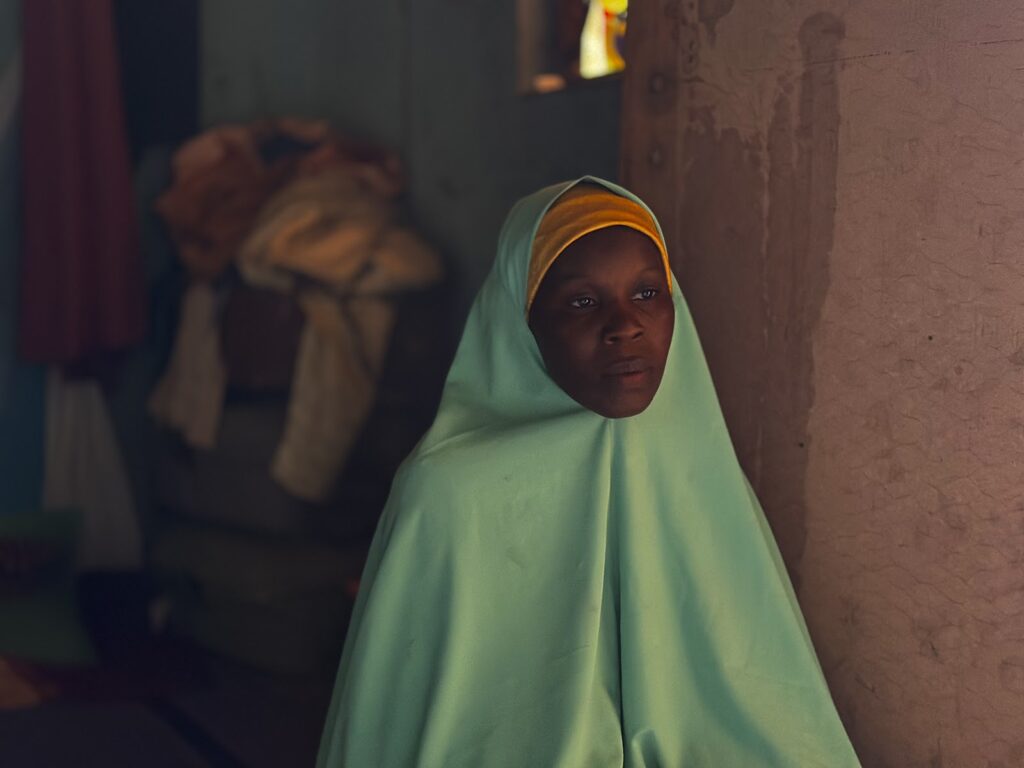
2013
That day during the trip, when she was arrested, she remembers being taken into a military barracks in Yola with a few others, including a pregnant woman who was travelling with two of her kids. She describes the officials as wearing white uniforms, meaning they were most likely officers from Nigeria’s Civil Defence. The following day, the pregnant woman went into labour and was taken away to receive medical attention. By the time she returned with the newborn, her other two kids had been taken away. When she asked about the whereabouts of the kids, the women lied to her, worried for her health, saying the kids had gone to use the toilet. When they did not return an hour later, she grew restless and asked again. They were forced to tell her the truth. The woman fainted.
After three months, they were transferred to Giwa barracks in Maiduguri, the capital of neighbouring Borno state.
“I will not bore you with details of how nasty Giwa barracks is – the thirst, the suffering, the starvation – I assume you already know,” she says. Then, almost immediately, she adds, “Actually, it is impossible for you to truly know. Some things you need to experience for yourself to be able to understand.”
Giwa barracks is notorious for human rights abuses. HumAngle has reported extensively about the experiences of past inmates there, including the high levels of congestion, the absence of adequate food and water, and frequent deaths. Amnesty International has also condemned the deplorable conditions in which people were held in the facility, including in May 2016 when it wrote that “since January 2016 at least 149 people, including eleven children under the age of six, have died following their detention in horrendous conditions at Giwa barracks military detention centre.”
After a month at Giwa barracks, Hafsatu and the other women were transferred to the Wawa military cantonment in Kainji, north-central Nigeria, where she spent the next 11 years.
At this point of my talk with her, her son Amir comes in. Her face lights up immediately as he sits beside her. For the next few minutes, when he sits there, she finds herself staring at him in wonder. Her voice begins to sound stronger, higher, and jovial. He is the light of her life.
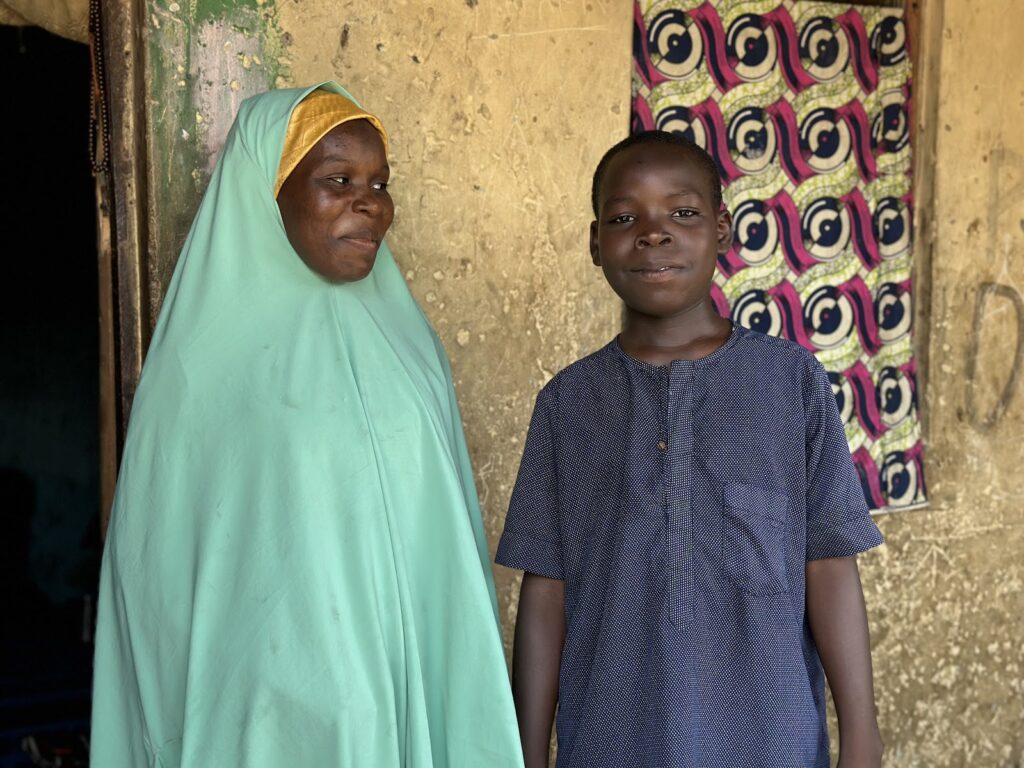
Life in Kainji was brutal. There were no recreational activities and no chance at freedom. She was put in a room she described as a hole. It was so small she could not stand upright. In it, they were required to do all their business: bathe, wash, etc.
“As small as I am, I could not stand upright in the room, much less a tall person,” she says. “And we still had to wash and bathe inside that small space in that condition.”
She was put in chains and paired with another woman, she says. One end of the chain was clasped around one of her ankles, and the other end of the chain was clasped around the other woman’s ankles. This way, they had to do everything together. If one person needed to use the toilet, the other had to go with them. If they wanted to move around, the other person had to go with them. For about four years, this remained her reality.
On some days, whenever new inmates were brought in, they would hear the sounds of thick belts forcefully coming down hard on bare human flesh and only leaving to come back hard again, as though determined to split open the skin. They also heard the resultant cries from the woman receiving the beating. The sounds were haunting, she tells me. Every time they brought a new inmate, this cycle happened.
Afterwards, the woman would be pushed into the cell, completely naked and covered in wounds and welts. This, and the constant verbal abuse, are some of the things Hafsatu wishes would end even now that she has left.
This treatment violates various laws, including Nigeria’s constitution, as well as international laws like the UN Torture Declaration, which was adopted in December 1975.
Article 3 of the Declaration states, “No State may permit or tolerate torture or other cruel, inhuman or degrading treatment or punishment. Exceptional circumstances such as a state of war or a threat of war, internal political instability or any other public emergency may not be invoked as a justification of torture or other cruel, inhuman or degrading treatment or punishment.”
“We were treated like animals,” Hafsatu says. “Even lower than animals because at least animals can roam about in freedom… It would be good for them to stop that beating. They stopped it for a few years, but shortly before we were released, they resumed it.”
Sometimes, visitors would come over to ask questions about the circumstances that led to their detention. Once, the facility had some visitors who made the case that the chains served no purpose. One of them had argued that it was impossible for inmates to run away even without chains as they were in complete isolation and darkness, in addition to how well-guarded the place was. That day, the chains left, but four years of having them on had given her dark, circular scars around her ankles that still linger to this day.
“I was not caught with guns or explosives or anything,” she says as she shows me the scars around her ankles. “All of us women were actually not caught with anything incriminating.”
2017/2018
About four agonising years later, as Amir was growing up in an orphanage in Adamawa, oblivious of whether or not he would ever see his mother again, Hafsatu was arraigned in a small room she came to understand was a makeshift courtroom. She does not remember the year exactly, but going by the details she gave, with her detention having happened in 2013, it seems this happened in 2017 or 2018, which was the first time the facility held trials for inmates, even though many of them had been held there since 2009. The arraignments at Wawa during this time received criticism from human rights groups that were sceptical about their integrity. Human Rights Watch, whose staff were present at the trial, reported that “the proceedings were very short, with some lasting less than 15 minutes, raising several fair trial and due process concerns. Most charges were couched in ambiguous and vague terms without the crucial information Nigerian law requires, like the specific date, place, and details of the alleged offence.”
They reported that many of those arraigned had not been given a prior chance to confer with their lawyers adequately to make them able to prepare their defence. This was also Hafsatu’s experience.
The judge asked her questions about her offence and the circumstances of her detention.
At the end of the proceeding, which was very short, with no evidence tendered against her, she was convicted on the basis of “knowing a Boko Haram member and not reporting him.” This was likely classified as providing “material and non-violent support” to Boko Haram. Human Rights Watch observed that many of those convicted during the trials were on that ground. They were accused of doing so by “repairing their vehicles, laundering their clothes, or supplying them with food and other items.”
The ‘Boko Haram member’ in question was her husband. As far as she knew, he had never taken up arms. He attended preachings in the early days but stopped, like hundreds of other people, when the gang became violent. But that did not save him. HumAngle understands that he was detained shortly after Hafsatu’s arrest and reportedly killed.
Still, she, whose only alleged crime was knowing him, remained in detention for years after.
2024
When we go around Maiduguri in a tricycle, Hafsatu gawks and sometimes hangs her head out of the vehicle, taking in all the view. When she sees a huge bus, she chuckles and turns to me.
“When I first returned and saw this bus, I was so confused. I thought they were trains, so I didn’t understand how they could operate on normal roads instead of rail tracks.”
She is also struggling to understand and recognise Naira notes. She recently sent a child to buy her some soap. When the child returned with some change, she found it difficult to understand the value.
Her legs, especially her knees and other joints continue to hurt.
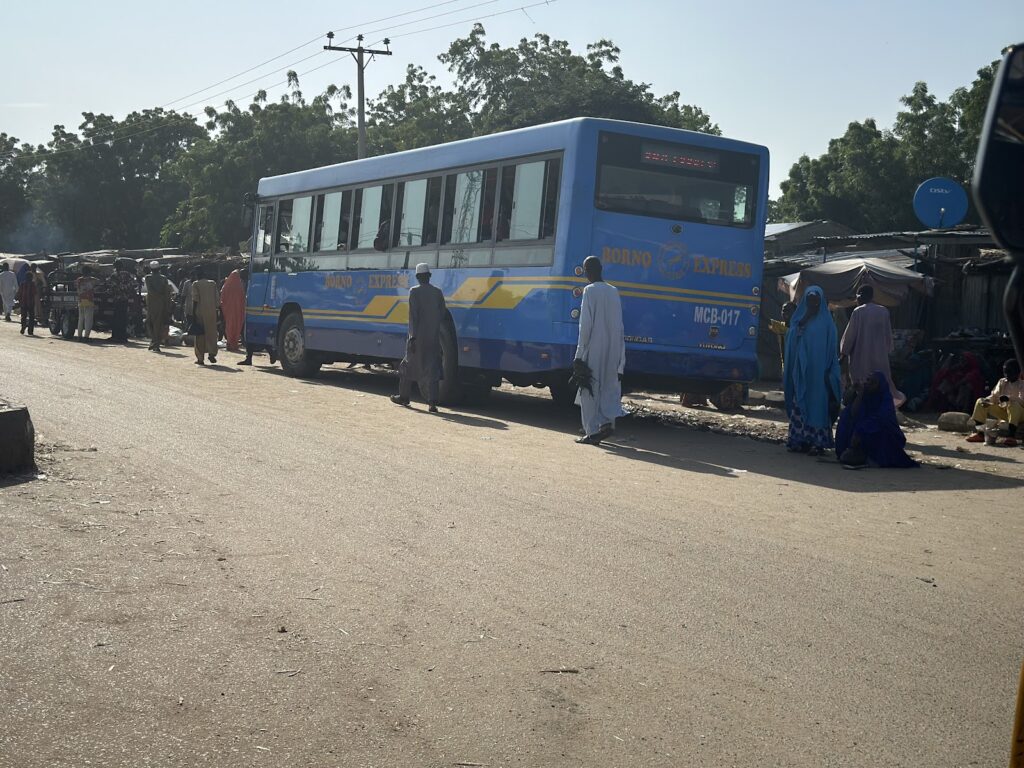
“My mother returned on a Friday,” Amir says with a smile so big it reflects in his voice.
“My grandmother had not yet gone for the Friday prayers that day.” He was in her house at the time. His friends rushed into the compound, screaming, “Amir, your mother is back! Your mother is back!”
Confused, he went out. And there she stood, a small conquered woman wearing a long hijab, her eyes not quite hers. They stood there for a few moments staring at each other, and then they burst into tears.
“I never thought I would ever see my mother again,” he tells me now.
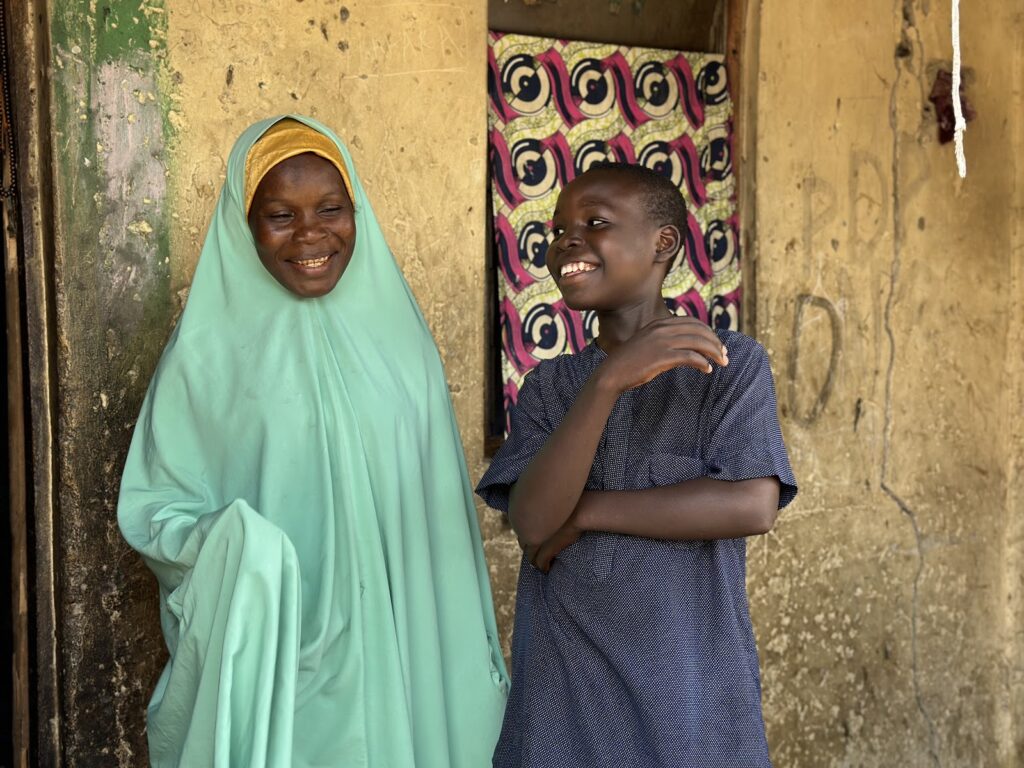
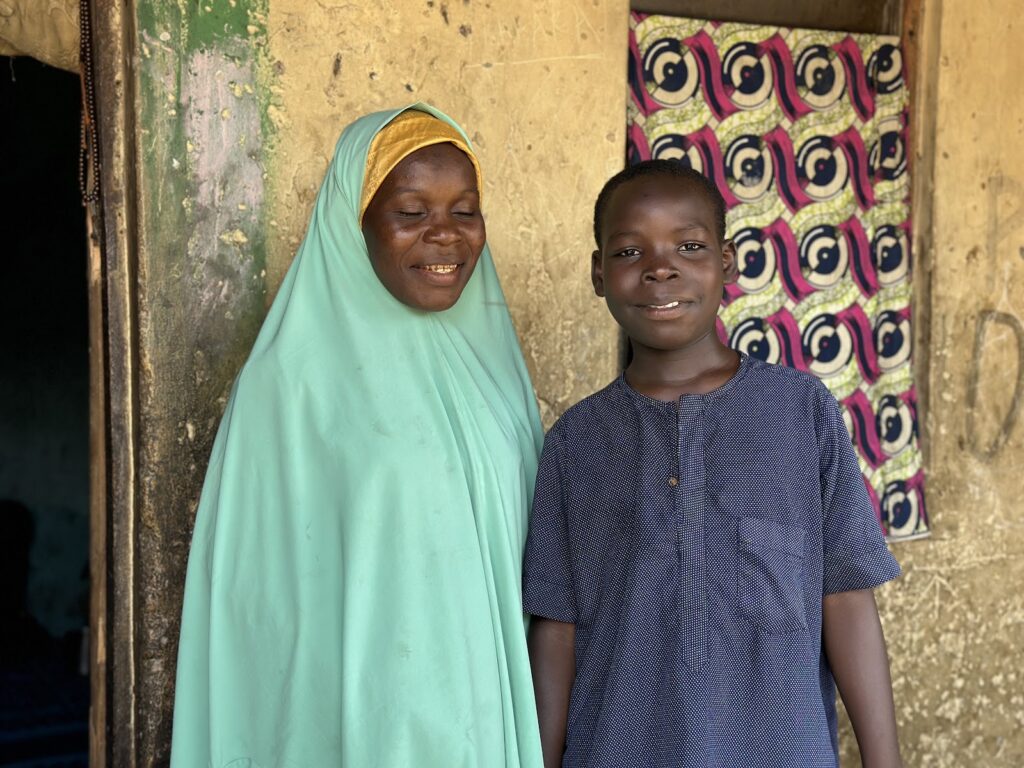
A few days before Hafsatu was released, officials came to fetch her from the cell and take her to an office where she was required to thumbprint. They confirmed her name and other details, then took her back to the cell. About two weeks later, she was finally released alongside six others.
They were taken first to Giwa barracks in Maiduguri and then to the Umaru Shehu Rehabilitation Centre, which now serves as a transit centre for newly released detainees. There, they contacted her sister to come to fetch her.
As she stood there waiting, she caught a glimpse of a figure that looked like her sister’s approaching her from a far distance. “I kept staring, wondering: is that my sister? Is that not my sister? I wasn’t sure. I could not see very well.”
When they closed the distance between them, they began to weep.
“I was weeping and laughing at the same time. I was very happy.”
When I ask Hafsatu what justice would look like for her, she is silent for a whole minute. I ask the question again, this time with the help of a translator, in case something was lost in translation. She affirms that she understands the question. Still, she does not say anything.
In the end, she says simply, “There can be no forgetting.”
